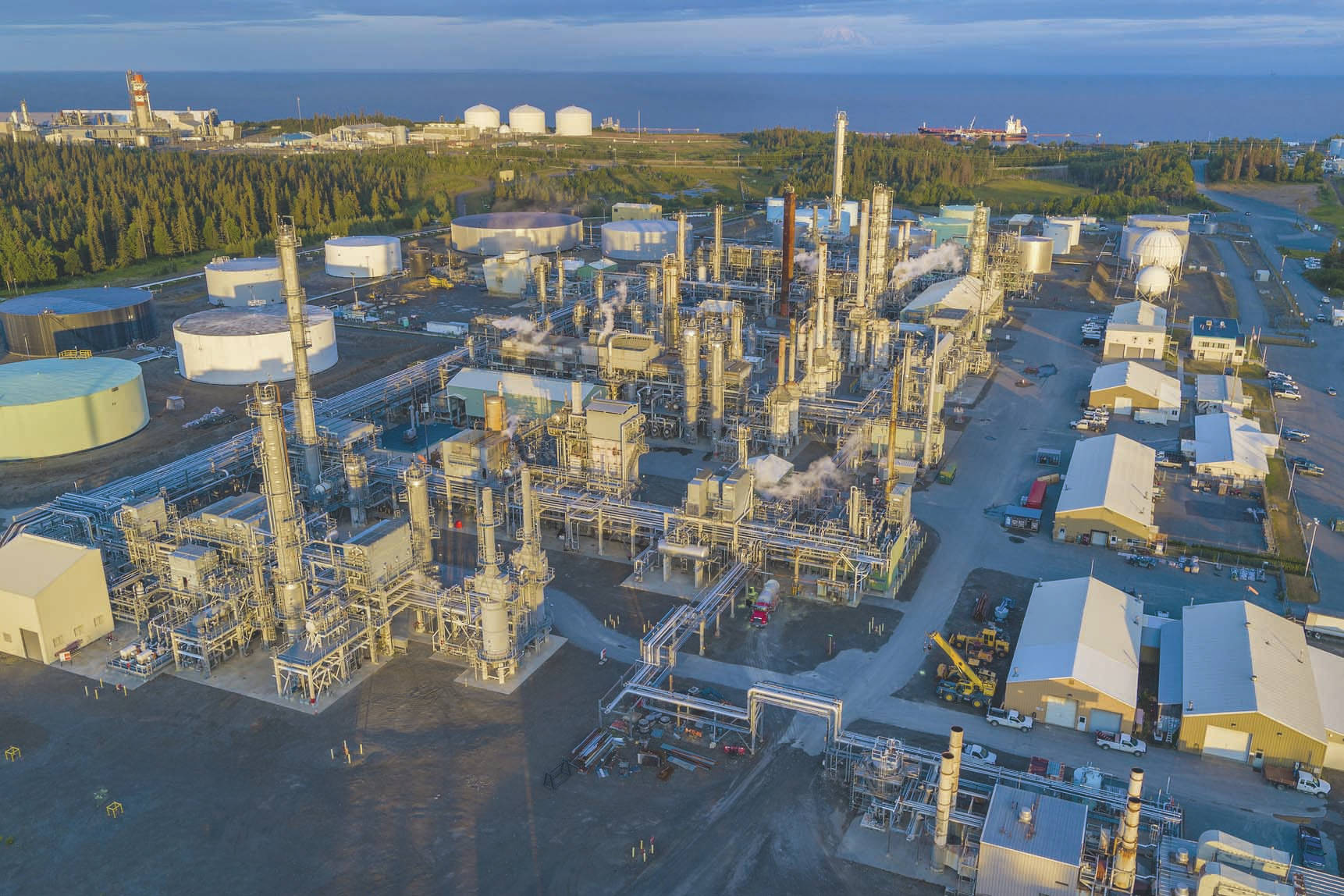At the tail end of a summer during which the economy has been battered by the new coronavirus pandemic and low salmon returns, the central Kenai Peninsula will get an economic boost from the turnaround project at Marathon Petroleum’s Kenai Refinery.
Cameron Hunt, the general manager at the Kenai Refinery, said in a released statement the project means about $4 million in items such as lodging, meals and per diems and an additional $14 million to local contractors, equipment, services and goods.
Casey Sullivan, government and public affairs manager for Marathon Petroleum in Alaska, said the project is significant for the central peninsula economy. He added that the economic benefits will also spread to Southcentral Alaska.
“All in all, it’s a pretty big capital project for an area like the peninsula, which hasn’t seen a big capital investment like this over the last couple of years,” Sullivan said. “I think this will be a very welcome shot in the arm to the economy.”
According to Marathon, “A turnaround is a planned, periodic shutdown of all or part of a refinery to perform maintenance, overhaul and upgrade operations, and inspect, test and replace materials and equipment.”
Sullivan said turnaround lets Marathon meet federal and state regulations for inspecting, maintaining and repairing operating equipment.
Turnarounds, according to Sullivan, occur every three or four years. He added that turnaround was originally scheduled for spring, but Marathon delayed the project due to the new coronavirus pandemic.
According to Sullivan, Marathon does not give the exact dates of turnaround because the company operates in a competitive marketplace.
“It’s fair to say we’ve been working on turnaround, in some aspects, all summer,” he said. “There will be increased activity here in the next couple of weeks and it will go on for a number of weeks after that.”
Sullivan said the Kenai Refinery has about 250 employees. A peak of more than 500 additional contractors will come to the Kenai Refinery for turnaround.
“A fair bit of the contractors come from out of state primarily due to the specialized work they will do, but the local workforce will be there as well,” Sullivan said. “Specialized contractors are really the ones necessary for the required work to be done.”
Sullivan said Marathon’s employees and contractors are committed to practices to greatly reduce the risk of spreading the new coronavirus.
“Safety is a core value at Marathon Petroleum that never wavers,” he said.
At the Kenai Refinery, Sullivan said a mitigation plan went into effect when the pandemic began. He added the plan has been constantly updated using information from Centers for Disease Control and Prevention, and Alaska Department of Health and Social Services. The petroleum company also uses other emerging information about the virus to fine-tune safety measures.
Of the 250 employees at the Kenai Refinery, Sullivan said one has tested positive for COVID-19 and that was not a work-related positive. He said rules regarding masks, sanitation and personal hygiene have kept any spread from happening in the facility.
Also, Sullivan said many of the Kenai Refinery’s workers continue to telecommute as part of mitigation efforts.
“There’s all this controversy around masks,” Sullivan said. “In our line of work, personal protective equipment, or PPE — eyewear, masks, any sort of covering — we’re really used to that already.
“There’s no controversy behind the fence. It’s now another piece of protective equipment we’re required to wear when we’re in an enclosed area with other people.”
Sullivan said Marathon’s commitment to safety will continue as contractors are brought to the central peninsula. He said Marathon’s plan for COVID mitigation for bringing contractors to the peninsula has been submitted to the state of Alaska and approved.
Hunt added that Marathon has safely executed turnarounds at other refineries in the Lower 48. Marathon used those turnarounds to learn more about how to safely execute the project.
As part of the plan approved by the state for bringing contractors to Alaska, Sullivan said contractors are screened before travel, required to wear a mask during travel and are required to maintain social distancing as much as possible.
When the contractors get here, according to Sullivan, they must quarantine at their place of lodging for 14 days, leaving only to come to work.
Before entering the plant, Sullivan said workers are screened for symptoms, a screen that may include temperature checks.
After the 14-day quarantine, Sullivan said contractors are free to go into the community but that does not mean they definitely will mix with the community.
“They have their own incentives for limiting exposure,” Sullivan said. “A lot of them come from pretty specialized teams and they don’t want to potentially get COVID from the table next to them.
“If they contract it, they are potentially out of a lot of work down the line.”
Sullivan said some contracting groups are even going to portable and modular housing units. They also are providing their own ground transportation so workers don’t have to use taxis.
Sullivan said Marathon has a strong incentive to pull off turnaround without spreading any coronavirus on the peninsula.
“What we do matters,” he said. “Ultimately, what the refinery does is use Alaska’s crude oil to create a variety of fuel products. It’s important we stay up and running because we create energy products used all over the state.”

